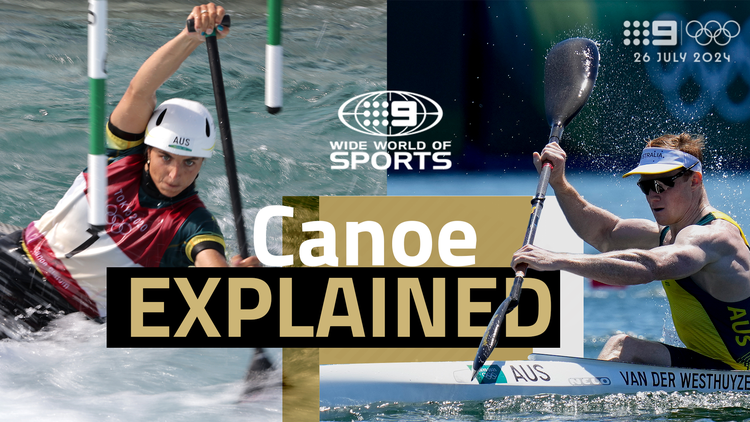
For a little over two weeks, the eyes of the sporting world will be on the French capital as thousands of athletes – including hundreds of Australians – gather for the biggest event on the planet.
If you need a quick primer before the opening ceremony, this is everything you need to know about Paris 2024, including start times, venues and how you can watch it live and free.

Note that all times are listed in Australian eastern standard time (AEST).
When do the Olympic Games start?
The Paris 2024 opening ceremony will begin at 3:30am (or 7:30pm local time) on Saturday, July 27, but the competition will actually kick off a few days earlier.
The action begins at 11pm on Wednesday, July 24 with a couple of men's football games, while the men's rugby sevens starts half an hour later.
The women's football groups stage also begins before the opening ceremony, as do archery and handball (the European variety, not the Australian schoolyard/Kevin Rudd version).
Once the opening ceremony is done and dusted, the official "Day 1" will begin on Saturday afternoon featuring the likes of gymnastics, basketball rowing and tennis, with medals to be awarded in cycling, diving, fencing, judo, rugby sevens, shooting, skateboarding and swimming.

When do the Olympic Games finish?
After more than two weeks of competition, the final even to wrap up in Paris will be the women's basketball gold medal match, which tips off at 11:30pm on Sunday, August 11.
As for the closing ceremony, it will begin at 5am on Monday, August 12, and is due to finish at 7:15am, and with it, Paris 2024.
From dresses to super suits, here is how Olympic uniforms have evolved
Where are the Olympic Games being held?
The Olympics will be held at a whopping 35 different venues, stretching from Paris all the way to the Pacific Ocean, while the opening ceremony will take place along the River Seine.
The bulk of the action will take place in the 25 venues scattered across Paris and the surrounding Ile-de-France region, many of which are located at the city's historic sites.
Beach volleyball, for example, will be held in front of the Eiffel Tower, archery next to the Hotel des Invalides, equestrian at Versailles Palace, and 3x3 basketball, breakdancing, freestyle BMX cycling and skateboarding at the Place de la Concorde.
Then there are some of the area's more traditional sporting stadiums: Stade de France just outside Paris will host athletics and rugby sevens, while the city's Parc des Princes will hold football matches.

There are more venues spread all across France to meet the scheduling needs of the event. Most of them are for football, but there are some sports that will venture outside Paris.
Châteauroux, a little under 300km south of Paris, will host shooting, while sailing will take place in Marseille and some basketball and handball games will be played in Villeneuve-d'Ascq, near the Belgian border.
But the sport venturing furthest from the opening ceremony is surfing. It's being held at Teahupo'o in the French Polynesian nation of Tahiti – almost 16,000km from Paris.
How can I watch the Olympic Games?
Nine, the publisher of this website, will be providing 24/7 coverage across its main TV channel, 9Gem and 9Now.
Streaming platform 9Now will have more than 40 channels, allowing viewers to watch whatever event they want throughout the games.

If you prefer to watch on TV, Channel Nine will show 22 hours of Olympics coverage a day, with one-hour news breaks at 11am and 6pm, while 9Gem will have Paris 2024 action on 24 hours a day.
The other platform you can watch the Olympics on is Stan Sport, which will be showing all 329 events live and ad-free in 4K ultra HD.
It will also have eight international/multi-language live channels, with coverage from the UK, Spain, France, Germany, Greece, Italy, India and New Zealand.
Who are Australia's best medal hopes?
Ariarne Titmus will be looking to defend her Olympic titles in the women's 200m and 400m freestyle, Kaylee McKeown in the 100m and 200m backstroke. Both are world record holders, and head to Paris as two of our best gold medal hopes.

World champion Mollie O'Callaghan is set to be one of Titmus' main challengers for the 200m freestyle crown, as well as being one of the leading contenders for the 100m metres.
The closest thing Australia has to a guarantee of a medal is in the women's 4x100m freestyle.
The team of O'Callaghan, Shayna Jack, Meg Harris and Emma McKeon set a new world record at last year's world championships, blitzing the previous fast-ever time Australia set at the last Olympics.
O'Callaghan, Jack, Harris and Bronte Campbell are in prime position to make up the team in Paris, having finished in the top four of the 100m final at last month's qualification trials.
Elsewhere in the pool, Elijah Winnington and Sam Short (both men's 400m freestyle), Kyle Chalmers (men's 100m freestyle) and Cam McEvoy (men's 50m freestyle) are all a chance of returning home with a medal draped around their neck.

Looking beyond the pool, there are some genuine individual gold medal chances in Jess Fox (women's C1 and K1 canoe slalom), Logan Martin (men's BMX freestyle), Nina Kennedy (women's pole vault) and Nicola Olyslagers and Eleanor Patterson (both women's high jump).
And on the team sport side of things, the women's rugby sevens outfit appear to be the best of Australia's hopes, having won the most recent tournament in Spain to be crowned the inaugural SVNS series champions.
The Opals are coming off a win against China, the second-highest-ranked side in women's basketball, although a gold medal would be a huge upset given the USA's dominance in that event.





